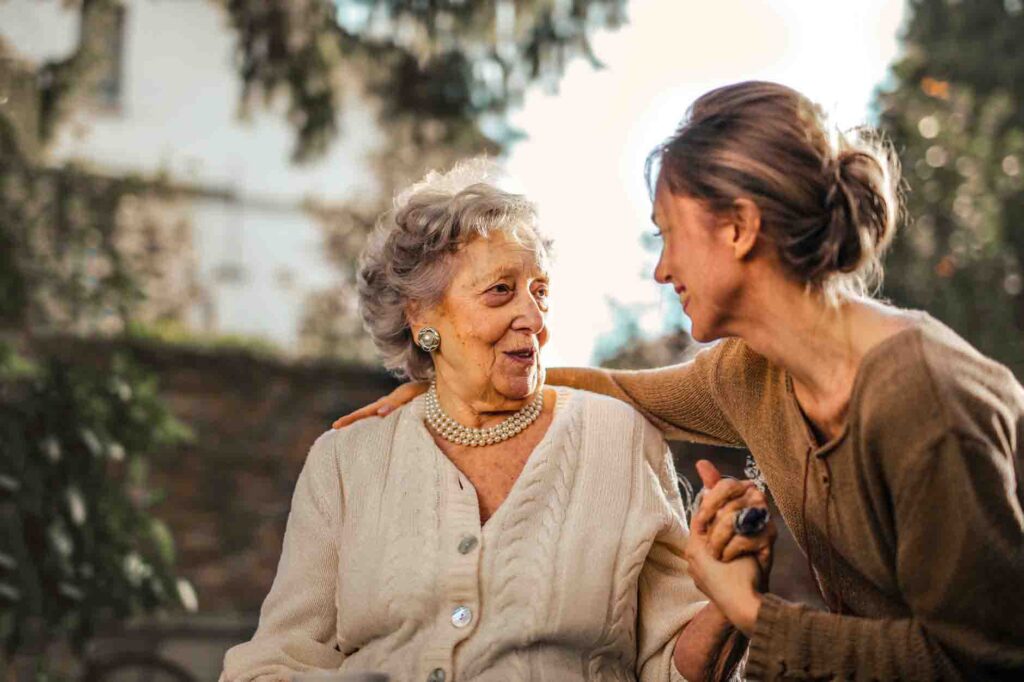A key focus of my blog is Health/Wellness. A major landmark in life is puberty. At that stage, the world changes for young people and it’s critical for parents to understand how to explain those changes. The following contributed post is entitled, Let’s Talk About The Birds & Bees: A Guide For Parents.
* * *

Parents from certain generations have different memories of “The Talk”. If you’ve got children who are approaching puberty or well into their teens, you probably still belonged to a family that didn’t openly discuss sexual health. Your parents definitely didn’t get a talk from theirs – and it gets even worse the further back you go.
Approaching the topic of the “birds and the bees” is always a fidgety moment for parents. You want to shy away from it as it makes you uncomfortable. At least, that’s how our parents acted in the past. We’re at a slight advantage as we now live in a more open world where sexual health talks are normalized and encouraged. It’s not as big of a taboo topic anymore – but that doesn’t make it any easier for us to talk to our kids about it!
Part of the problem is not wanting to freak your kids out; the other part is that you want to cling to the memory of your child being an innocent little kid. You put it off and before you know it your child is well into their teens and confused about everything.
A lot of pediatricians recommend starting sexual health talks when your children are as young as 5. That sounds crazy to some but it’s more about broaching different topics and letting them ask any questions they might have about the human body. You then gradually talk to them about more things as they get older, particularly when they approach puberty. The goal is to let them know what will happen to them before it happens – too many kids are frightened by the changes to their bodies because they have no clue what’s going on and aren’t taught about it until after the changes begin.
Keeping all of this in mind, you’re still on edge about broaching these topics with kids and teens. Maybe after seeing the dangers brought about by neglecting these talks, you’ll understand why they’re crucial for all parents to have…
Schools Barely Cover The Subject
Parents are guilty of taking the easy way out and saying “Hey, I don’t have to teach my kids this as the schools will do it for me.” While that should be true, schools are notorious for barely covering this subject. They give the most base-level teachings on sexual health – and it’s often one time when your kids are around 10 or 11.
That will never be good enough and your children could have so many questions. Many kids get the “sex talk” from school and are left more confused than before. The curriculum is terrible for this and the onus is on you to pick up the slack and help them understand everything. Schools never talk about things like hormonal balances and how puberty can change your mood on a dime. You teach your child most things in life, so why shy away from one of life’s most important lessons?
Kids Can Easily Find Myths Or Misinformation Online
Following on from above, a child who had a sex education class at school is likely to do some online research. They have questions and things they want to know, so the internet is there to oblige. Unfortunately, this leads to a cataclysm of misinformation coming their way. They will read things that aren’t true and can mislead them in many ways.
The same goes for teens approaching sexual maturity. Perhaps they have a boyfriend/girlfriend and they want to learn more about sex. Googling this can help, but it’s so easy to find the wrong answers – particularly about stuff like contraception and safe sex. For example, a lot of adults don’t know the difference between medical abortion vs Plan B, let alone teens! People think they’re the same thing and may avoid Plan B altogether when it’s actually a safe form of contraception.
It’s insane how easy it is for your children to read the wrong things online, leading them down a terrible path to poor sexual health. You want them to be safe and to feel confident in what’s happening to their bodies. The best way to do this is by talking about things and listening to their questions. Provide them with trustworthy resources too, so you know they’re getting the right info and missing all the myths.
Uninformed Kids Exhibit Riskier Behaviors
What’s the problem with kids picking up myths or misinformation about sexual health online? They’re empowered to make wrong decisions. This leads to riskier behaviors when they’re older and is more likely to result in things like STDs or unexpected pregnancies.
It sounds obvious, but informed and properly educated kids grow up making better sexual health choices. There’s genuine evidence to support this with proper studies suggesting that appropriate sex education leads to increased contraception use, reductions in the number of sexual partners, and more positive attitudes towards safer sex. Kids with the proper information are also more likely to delay their “sexual debut” – that’s a weird term, but it’s the official lingo used in the study.
In other words, informing your kids and having chats with them as they grow and develop will help them have a better understanding of sexual health. They’re less likely to take risks and potentially ruin their – or other people’s – lives.
You Set Them Up For A Terrible Time During Puberty
It’s commonly known that young people may experience a higher risk of mental health issues with early puberty. Anxiety is the big one and it’s born from a complete lack of understanding. When you leave it too late to talk to your kids about puberty, the anxiety can already settle in. They have no idea why their body is changing and it freaks them out – why is their skin no longer clear and what’s all this extra hair doing everywhere?! Even after hearing what puberty is, they still might be scared about little changes here and there.
Talk to them before they reach puberty and you prepare them for it. This can save them from a lot of mental and emotional distress. Teens already have so much to worry about when going through puberty, so you can take at least one thing off their plate.
We know it’s hard, but please try not to shy away from talking to your kids about sexual health. Experts recommend starting these talks from an early age – but you don’t have to be crazily explicit about things. As you notice your child is starting to change and puberty is on the horizon, that’s when you should have a proper discussion about things. And be open to future discussions too – as they dip into their teenage years, you can talk about other things and ensure they grow up as adults with a good sex education.



